
October is Learning Difference Awareness Month! Members of our faculty and staff are helping to build awareness about language-based learning differences and ADHD by sharing their favorite books, articles, podcasts, documentaries, websites, and more. We invite you to explore the recommendations below!
Quick links:
Books for Adults | Books for Kids, Teens, and Young Adults | Articles
Podcasts | Documentaries | Other Resources
Books for Adults
The Science of Reading and Neuroscience
Gaynor’s reading curriculum is rooted in the science of reading research and uses evidence-based approaches such as explicit phonics instruction paired with multisensory strategies that incorporate sight, hearing touch and movement to help students become confident, fluent readers. Gaynor uses Orton–Gillingham, a structured literacy approach, which is derived from two sources: first from a body of time-tested knowledge and practice that has been validated over the past 80 years, and second from scientific evidence about how individuals best learn to read and write. This approach is particularly effective in teaching those with dyslexia but benefits all students who are learning to read.
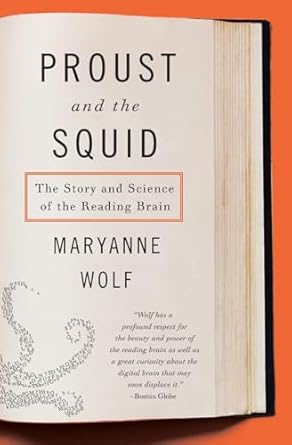
“Proust and the Squid: The Story and Science of the Reading Brain,” by Maryanne Wolfe
“This book describes how the human brain evolved to read, which is not a natural function. It also explains how the advent of reading impacted human development on the individual and cultural levels.”
—Donna Logue, Director of Lower Division

“The Brain That Changes Itself: Stories of Personal Triumph from the Frontiers of Brain Science,” by Norman Doidge, MD
“This is one of the first books written for a general audience about the brain’s neuroplasticity. Gaynor’s special education instruction, especially the OG approach, is effective because it promotes brain rewiring.”
—Donna Logue, Director of Lower Division
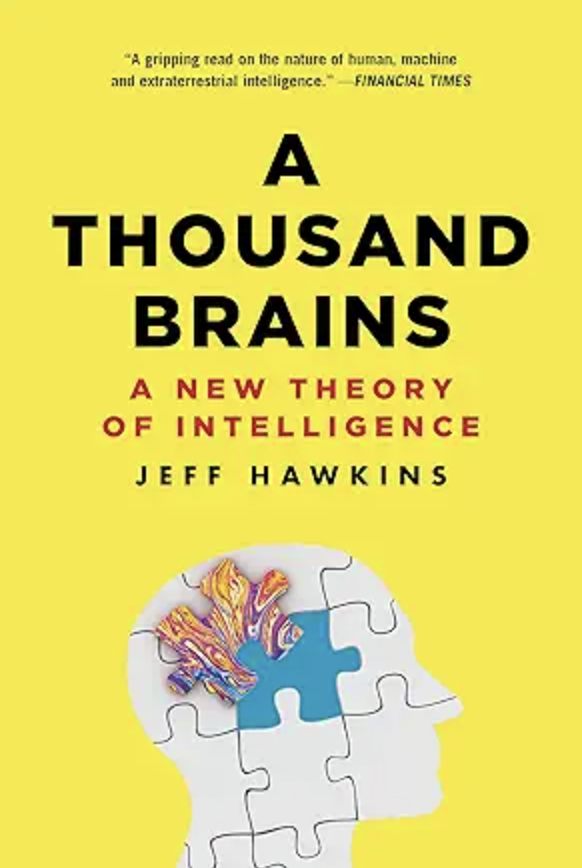
“A Thousand Brains: A New Theory of Intelligence,” by Jeff Hawkins
“According to this author the brain uses visual-spatial mapping to create an individualized model of the world and an overall sense of self. While not a book about learning differences per se, its thought-provoking hypotheses support the idea that people learn through multi-sensory experiences.”
—Donna Logue, Director of Lower Division
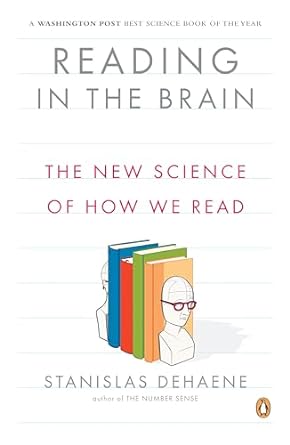
“Reading in the Brain,” by Stanislas Dehaene
The act of reading is so easily taken for granted that we forget what an astounding feat it is. How can a few black marks on white paper evoke an entire universe of meanings? It’s even more amazing when we consider that we read using a primate brain that evolved to serve an entirely different purpose. In this riveting investigation, Stanislas Dehaene, author of How We Learn, explores every aspect of this human invention, from its origins to its neural underpinnings.
Recommended by Donna Logue, Director of Lower Division
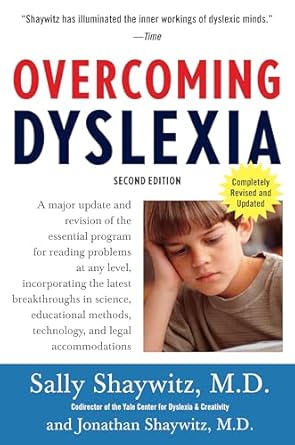
“Overcoming Dyslexia,” by Sally Shaywitz
“Why read this book? Because it’s incredibly comprehensive and practical.”
—Kristi Evans, Reading Specialist
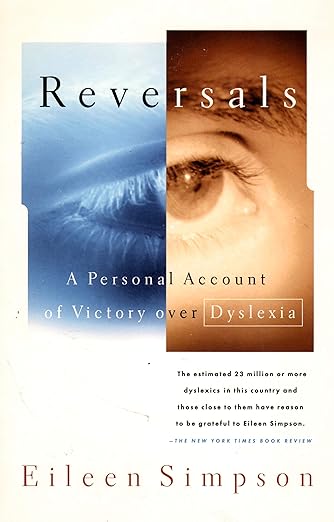
“Reversals: A Personal Account of Victory over Dyslexia,” by Eileen M. Simpson
“I recommend this book because I read it 30 years ago when I was starting out in the field and found it really inspiring.”
—Joe Kaufman, Math Teacher
ADHD and Executive Functioning
Ninety percent of children with ADHD struggle with executive functioning skills. Executive function training is embedded throughout the Gaynor curriculum. Students receive scaffolded support to manage their daily responsibilities as they develop these skills independently. Additionally, this skills training is seamlessly integrated into the classes across subject matter from reading class to physical education class, from the Early Childhood program to the Middle School. Gaynor’s oldest students also have a chance to participate in an executive functioning after school class.
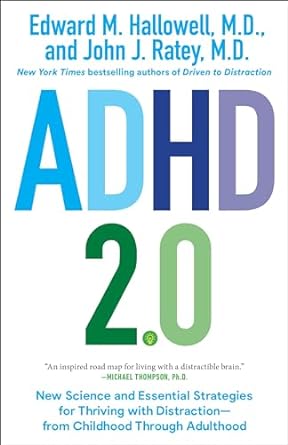
“ADHD 2.0: New Science and Essential Strategies for Thriving with Distraction–from Childhood through Adulthood,” by Edward Hallowell, MD, and John Ratey, MD
“Published in 2022, this book is an update to previous books written by Hallowell and Ratey related to ADHD. This is a fantastic book for adults with ADHD and for families who are seeking more information about the spectrum of traits associated with ADHD. It is informative, relatable, and thoughtfully describes the varied experiences of individuals with ADHD. I especially enjoyed the specific sections that discussed how ADHD manifests for girls and women. The authors share candid examples from their own lives and talk about ways to approach ADHD from a strengths-based mindset.”
—Rebecca Felt, Director of Intermediate Division
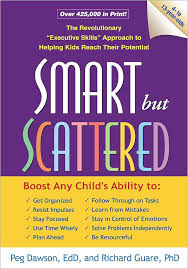
“Smart but Scattered: The Revolutionary “Executive Skills” Approach to Helping Kids Reach Their Potential” by Peg Dawson and Richard Guare
There’s nothing more frustrating than watching your bright, talented son or daughter struggle with everyday tasks like finishing homework, putting away toys, or following instructions at school. Your “smart but scattered” child might also have trouble coping with disappointment or managing anger. Drs. Peg Dawson and Richard Guare have great news: there’s a lot you can do to help.
— Recommended by Sari Perrino, Director of Advancement
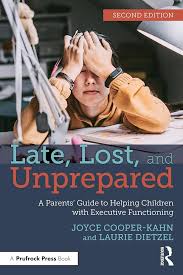
“Late, Lost, and Unprepared,” by Joyce Cooper-Kahn and Laurie Dietzel
Does your child have difficulty meeting deadlines, staying organized, or keeping track of important information? Do they tend to forget details? Are they prone to emotional meltdowns? This book will become your go-to, all-inclusive guide to helping children manage issues with these executive functions.
— Recommended by Sari Perrino, Director of Advancement
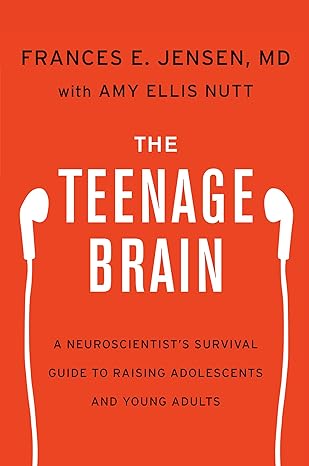
“The Teenage Brain: A Neuroscientist’s Survival Guide to Raising Adolescents and Young Adults,” by Frances E Jensen and Amy Ellis Nutt
Renowned neurologist Dr. Frances E. Jensen offers a revolutionary look at the brains of teenagers, dispelling myths and offering practical advice for teens, parents and teachers.
— Recommended by Sari Perrino, Director of Advancement
Books for Kids, Teens, and Young Adults
Self-advocacy is the ability to speak up for yourself and the issues that are important to you. At Gaynor, students learn self-advocacy skills through our Advocacy Program. Discussions about learning differences are initiated in the Lower School, primarily through literature and teacher-initiated conversation. The Student Advocacy Program helps students to understand their learning differences, their strengths and developing skills, and to increase their self-awareness. These skills prepare them to effectively self-advocate throughout their lives by helping them reflect and learn about themselves, their strengths and goals, and how to ask for help.
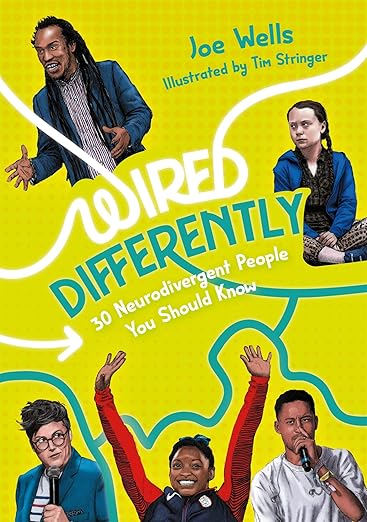
“Wired Differently– 30 Neurodivergent People You Should Know” by Joe Wells
Ages: Teens and Young Adults
“I loved reading about so many different successful neurodivergent people and how their differences played a huge role in their success!”
—Courtney Smotkin, Blue Cluster Advisor and Math Teacher
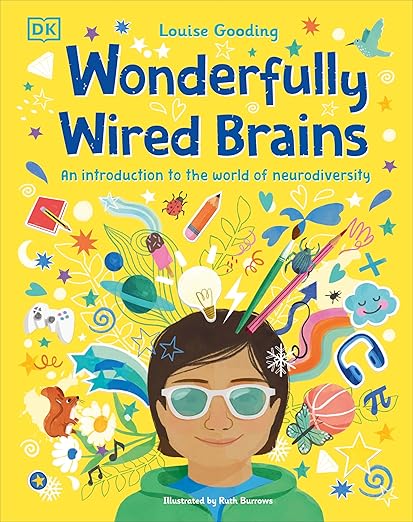
“Wonderfully Wired Brains: An Introduction to the World of Neurodiversity” by Louise Gooding
Ages: Kids and Tweens
“This book is informative and easy to read with great illustrations!”
—Courtney Smotkin, Blue Cluster Advisor and Math Teacher
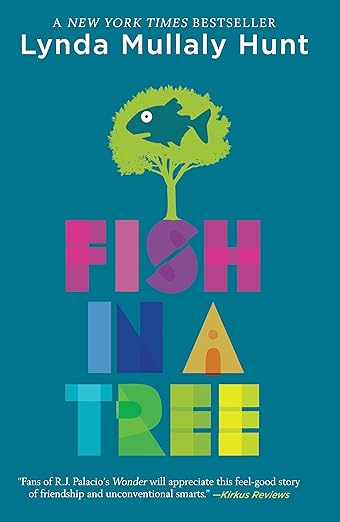
“Fish in a Tree” by Lynda Mullaly Hunt
Ages: Tweens and Teens
“This book highlights the struggles of a student with dyslexia and how a caring teacher helped her see her creative side and potential.”
—Dr. Scott Gaynor, Head of School
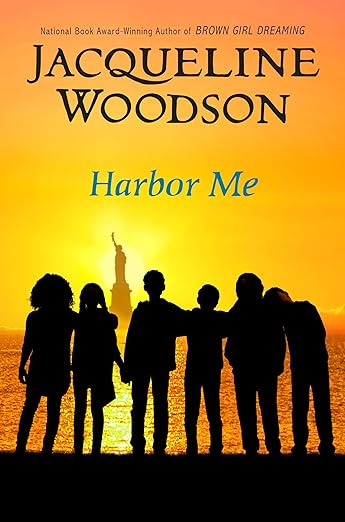
“Harbor Me,” by Jacqueline Woodson
Ages: Tweens and Teens
“This novel has been taught at Gaynor and I love anything written by Jacqueline Woodson. The story centers on the experiences of six diverse fifth and sixth-graders with learning differences who form a bond in their class and build community by sharing their personal experiences. The novel touches on race, immigration, bullying, friendship, forgiveness, and learning differences. I love how candidly the students speak about how their brains work. This book lends itself to rich discussions in class and I’ve found that our students gravitate to the stories shared.”
—Rebecca Felt, Director of Intermediate Division
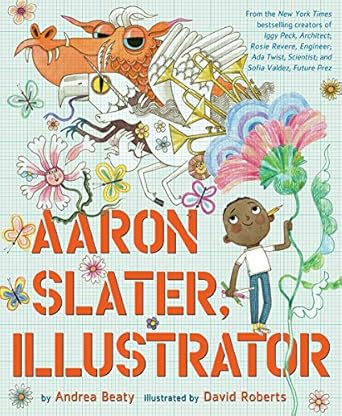
“Aaron Slater, Illustrator: A Picture Book,” by Andrea Beaty and David Roberts (The Questioneers)
Ages: Early Childhood and Kids
“I love how this book covers both the challenges and the gifts of having a learning difference. And it’s printed in a dyslexia-friendly font.”
—Emily Barnes, Director of Outreach and Innovation

“Ish”, by Peter H. Reynolds
Ages: Early Childhood and Kids
“It is not a book specific to LD but is about accepting yourself and embracing imperfections as assets.”
—Amy Warden, Director of Enrollment Management
Articles
“Dyslexia and the Brain: What Does Current Research Tell Us?” by Roxanne F. Hudson, Leslie High, Stephanie Al Otaiba, Reading Rockets website
“I recommend this article because it does a great job debunking common myths about dyslexia.”
—Kristi Evans, Reading Specialist
“What Can Teachers Do to Engage Anxious Students?“ by Jessica Minahan, Sarah Ward, and Kristen Jacobsen, ASCD.org
“I particularly like this article that discusses anxiety, executive function struggles, and student engagement.”
—Jill Thompson, Assistant Head of School
“How Spelling Supports Reading,” by Louisa C. Moats, American Educator Magazine
“I’m recommending this article because English is more reliable and predictable than you think.”
—Kristi Evans, Reading Specialist
*Created by Gaynor’s Own Experts*
Creating Executive Function-Rich Environments That Foster Student Success
Enhancing Student Outcomes Through Evidence-Based Teaching Strategies
Solving Today’s Reading Crisis by Returning to Time-Tested Approaches
As We Welcome the Science of Reading, Let’s Not Forget the Art of Teaching
Podcasts
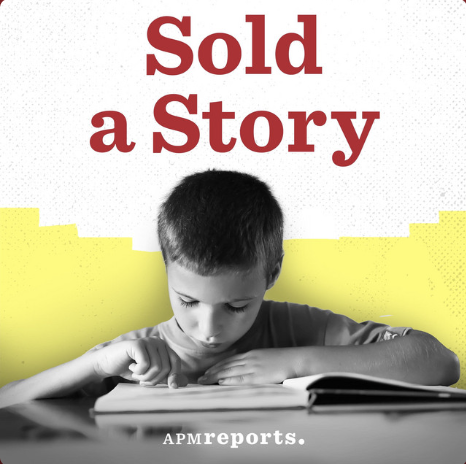
“Sold a Story” by APM Reports
“This is an engaging telling of the science of reading.”
—Dr. Scott Gaynor, Head of School
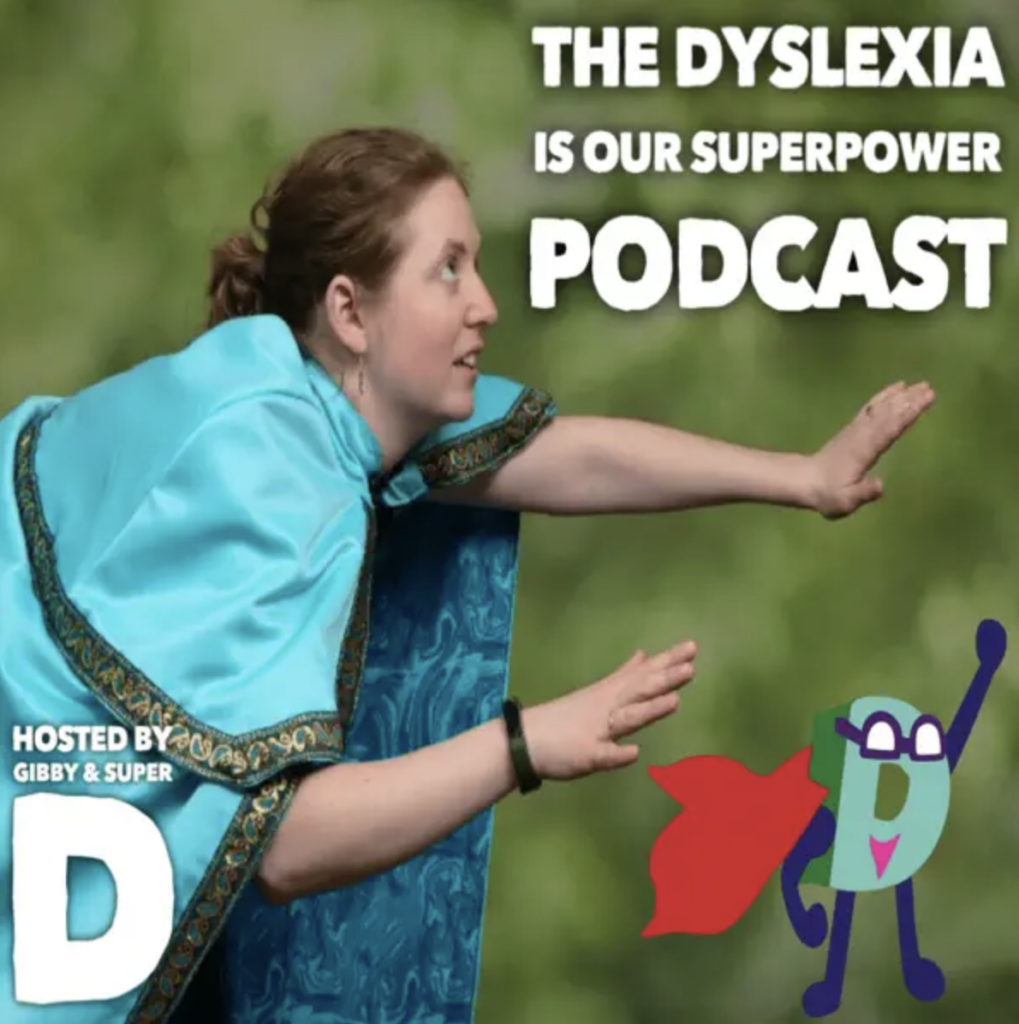
“Dyslexia is Our Superpower,” by Gibby Booth Jasper
For kids and families
“This podcast highlights dyslexics’ incredible strengths.”
—Kristi Evans, Reading Specialist
Documentaries
The Disruptors documentary takes an immersive look at our approach to ADHD that debunks the most harmful myths, intimately taking viewers inside a number of families as they navigate the challenges-and the surprising triumphs-of living with ADHD. The film features interviews with experts such as Dr. Amy Margolis and Dr. David Anderson, both of whom have also worked with Gaynor to develop curriculum and support families. Read more about Gaynor’s screening and panel discussion here.
“The Big Picture: Rethinking Dyslexia”
Recommended by Kristi Evans, Reading Specialist
“Journey into Dyslexia” HBO Documentary
“It gets people who have reading and writing issues excited about what’s possible in life.”
—Kristi Evans, Reading Specialist
“While not specifically about dyslexia, this documentary looks at how learning to read is a civil right that has been denied for so many children across the country and how through implementing the science of reading, we can change this.”
—Emily Barnes, Director of Outreach and Innovation
Other Resources
“ADHD and Emotional Dysregulation: What You Need to Know” from the “How to ADHD” YouTube series
Recommended by Pat Fitzgerald, Physical Education Teacher and Director of Athletics
“It’s a great way to get a personalized set of resources based on your child’s needs.”
—Deanna Ferrante, Director of Communications
Recommended by Sari Perrino, Director of Advancement
